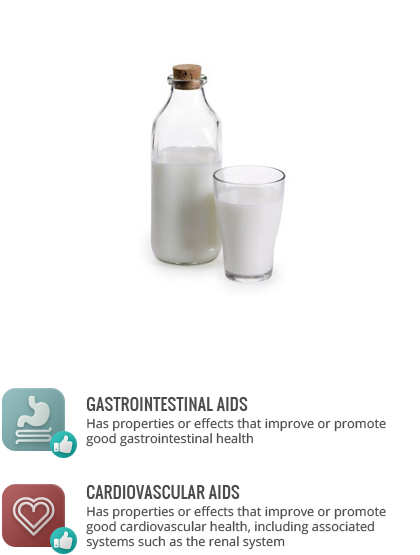Milk, goat’s
Definition
Goat’s milk is the increasingly popular cow’s dairy alternative. It has similar total fat, protein, and lactose content to cow’s milk, though differing individual fatty acid and amino acid profiles.
Health considerations
Goat’s milk is an alternative to cow’s milk for those with allergies to cow’s milk proteins, though not for lactose intolerant individuals. Multiple government agencies discourage goat’s milk use for infants sensitive to cow’s milk. In studies of children and humans bearing difficulties with absorption and digestion, the consumption of goat’s milk over cow’s milk improved weight gain and micronutrient absorption. It also reduced total cholesterol levels while improving cholesterol profiles. Goat’s milk contains 46% more medium-chain triglycerides than cow’s milks, particularly caprylic, capric, and caproic acid. See: Medium chain triglycerides.
Keep in mind
Goat milk plays an essential role in nutrition around the world, goats being a lower-cost dairy animal than cattle.
May be found in
Goat’s milk cheeses, yogurts, milk


